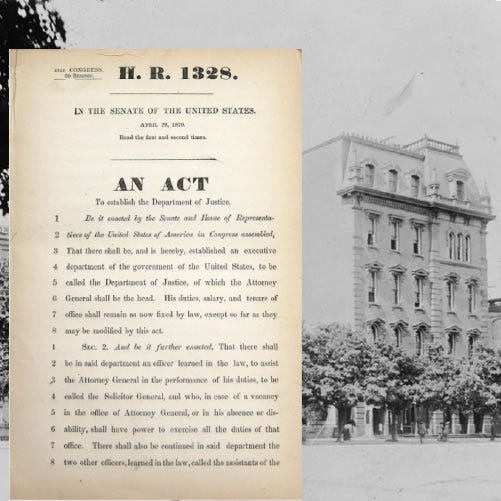Bonus 118: On the Credibility of the Department of Justice
Three days into the second Trump administration, there are already reasons to be gravely concerned about the extent to which government lawyers will turn square corners with (and in) the Supreme Court
Welcome back to the weekly bonus content for “One First.” Although Monday’s regular newsletter will remain free for as long as I’m able to do this, much of the bonus content is behind a paywall as an added incentive for those who are willing and able to support the work that goes into putting this newsletter together every week. I’m grateful to those of you who are already paid subscribers, and hope that those of you who aren’t will consider a paid subscription if and when your circumstances permit:
There’s certainly no shortage of things to discuss arising out of the flurry of executive orders and other actions taken by the Trump administration since Monday afternoon. Indeed, there’s already a hearing scheduled for later this morning in one of the lawsuits challenging the order purporting to restrict birthright citizenship (an order that is written in a way that makes it even more vulnerable to challenge than I’d suggested in my earlier piece).
But I thought I’d use today’s bonus issue to touch on a theme cutting across a bunch of these developments—the subtle but significant shift in how the White House intends to use the Department of Justice, and what that shift portends, in turn, for the credibility (or lack thereof) government lawyers will have in federal courts in general—and in the Supreme Court, in particular.
As I explained in one of the first issues of this newsletter, there has always been something of a tension between the Justice Department’s location in the executive branch, on the one hand, and the obligations of its lawyers, under the Constitution, federal statutes, and state ethics rules, on the other. The former suggests that the Department exists to help bring the President’s policy goals into reality; the latter requires the Department’s lawyers to faithfully execute federal law; to defend the constitutionality of federal laws that can be defended; and to reflect the highest standards of the legal profession in doing both. Indeed, for most of its 155-year history, the Department has walked that tightrope between serving its political masters and preserving fidelity to the rule of law—even if sometimes in the breach.
The early returns on the second Trump administration, alas, appear to portend a radical upending of that equilibrium, as reflected most prominently in the executive orders relating to TikTok and the death penalty and the Acting Deputy Attorney General’s memorandum outlining the administration’s immigration enforcement priorities. Of course, a Department of Justice with declining credibility in the courts may be a salutary development in the short term—especially for those who are opposed to the policies for which the Department is advocating. But in the long term, a Department of Justice in name alone is going to have much more difficulty litigating not just the federal policies we oppose, but the federal rights on which we have come to rely—and which the Supreme Court has made it far harder for anyone else to enforce.
For those who are not paid subscribers, the next free installment of the newsletter will drop on Monday morning. For those who are, please read on.



